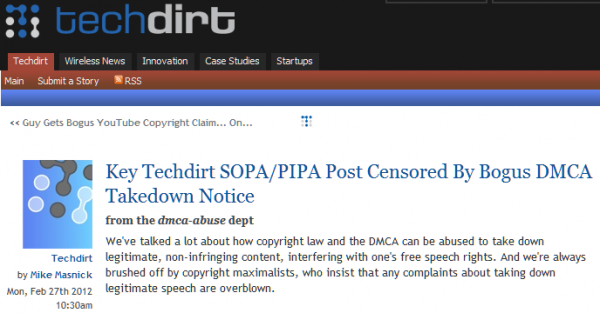

THE site which has become popular for antagonising intellectual monopolies recently covered some stories that are relevant to us. One such post deals with the podcasting patent which we wrote about in February [1, 2]. Another is this this post about an Amazon patent. And as noted here before, these patents help illustrate just how deep in the mud the USPTO has sunk. Mr. Cuban [1, 2] said he would target the issue and some TechDirt coverage had this to say:
For years, we've talked about the idea of an independent inventor defense for those accused of patent infringement -- which, contrary to the claims of some patent attorneys, is totally feasible -- and that idea has received some traction. However, we've also argued that things should go even further, and that if there is evidence of multiple independent inventions of the same concepts that it is a sign of obviousness, and all such patents should be rejected -- since patents are not allowed on inventions that are considered "obvious" to those who are "skilled in the art." Unfortunately, we've seen less support for that specific idea -- but perhaps that's changing.
Last year, we wrote about the next important lawsuit concerning software patents, the CLS Bank v. Alice case, which the full Federal Circuit appeals court (CAFC) heard today. Our last post on the case provided the background, but the short version was that it involves some software concerning doing a "shadow transaction" to see if there are really enough funds to complete a transaction, before completing the actual transaction. The district court found that this was just a representation of an abstract idea, and thus not patentable. CAFC, using a typical three judge panel, reversed that decision, saying that it was patentable subject matter. However, CAFC agreed to rehear "en banc" with the entire 10 judges, because there was some concern about the original ruling (which was split 2 against 1).